In recent days, everyone started hating the topic of same-sex marriage in Ukraine quite actively. This happened after the corresponding petition on the president's website received the required number of votes. To be honest, this happened for the first time. Such petitions were created repeatedly and unfortunately did not gather the necessary number of signatures for them to be considered. I will start with the fact that Ukraine is currently at war, and in wartime conditions, it is impossible to change the Constitution, so I doubt that we will have a "green light" for such a form of marriage. However, I want to explain why it is important and why it should be done.
Щось останніми днями досить активно всі знов почали хейтити тему одностатевих шлюбів в Україні. Сталось це після того, як відповідна петиція на сайті президента набрала необхідну кількість голосів. Це, якщо чесно, сталось вперше. Подібні петиції створювали неодноразово і на жаль не набирали необхідної кількості підписів для того, щоб її розглянули. Почну з того, що в Україні на сьогоднішній день йде війна, а в умовах воєнного часу неможливо змінювати Конституцію, тому я сумніваюсь, що у нас буде "зелене світло" на таку форму шлюбу. Проте, хочу пояснити чому це важливо і чому це потрібно зробити.
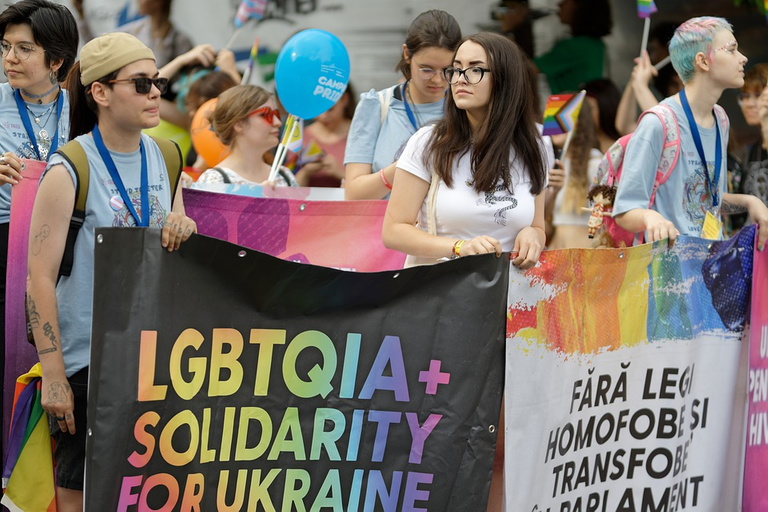
First of all, homophobia is the way of development of russians, and we are better, right? Today, throughout the country, we are fighting for freedom and dignity. And the rights of various minorities are also about freedom and dignity. Because when it comes to the Russian language, a huge number of people refer to the fact that Russian-speaking people are fighting and protecting us today, and when the topic is LGBT, no one mentions that representatives of the LGBT community are also fighting on the front lines today.
По перше, гомофобія це шлях розвитку росіян, а ми ж кращі, правильно? Ми сьогодні всією країною боремось за свободу та гідність. І права різних меншин це теж про свободу та гідність. Тому що коли мова заходить про російську мову, то величезна кількість людей посилається на те, що російськомовні люди сьогодні воюють та захищають нас, а коли тема заходить про ЛГБТ, то ніхто не згадує, що на передовій сьогодні воюють і представники ЛГБТ спільноти.
And now about what we need marriage for. First, is the definition. Marriage is a legal contract between two people that gives them rights and obligations. In Ukraine, it is enough to reach the age of marriage consent and not be blood relatives. There are no obligations to give birth to a child in the Family Code. Therefore, it is not necessary to talk about the fact that there are no children in such families and there is no meaning for them. You forget at this moment about hetero couples who physically cannot have children, for example. Or they don't want to. But marriage is still given to them.
А тепер про те, для чого нам потрібен шлюб. По перше, визначення. Шлюб - це юридичний договір між двома людьми, який наділяє їх правами і обов’язками. В Україні для цього достатньо досягти віку шлюбної згоди і не бути кровними родичами. Зобов’язань народити дитину у сімейному кодексі немає. Тому не потрібно кожного разу говорити про те, що в таких сім'ях нема дітей і сенсу від них нема. Ви забуваєте в цей момент про гетеро подружжя, котрі фізично не можуть мати дітей, наприклад. Або не хочуть. Але шлюб їм дають все таки.
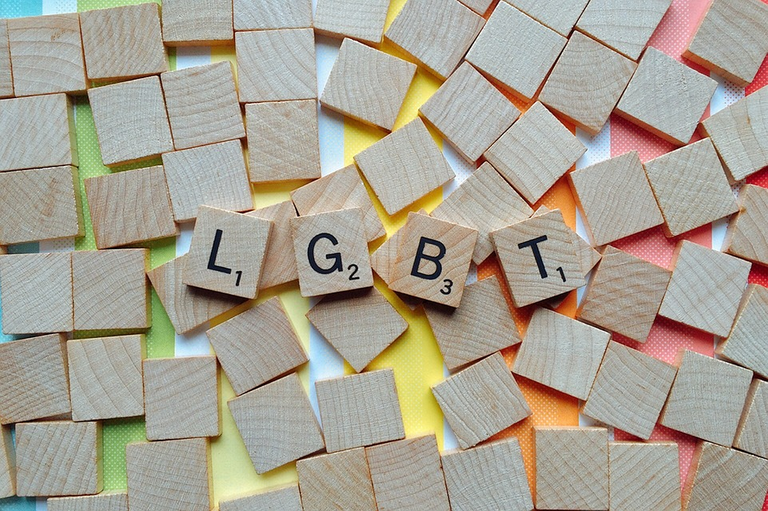
A family consists of persons who live together and are connected by common life. A family is created on the basis of marriage, consanguinity, and adoption, as well as on other grounds that are not prohibited by law and that do not contradict the moral principles of society. By and large, based on this phrase, it is not necessary to get married to become a family, so same-sex couples are also a family. But. There are certain nuances and I will list them for you, which are not present in people who could live together for 20 years, but because of the lack of opportunity to legalize their relationship, they suffer. Even hetero couples living in a so-called civil marriage have more rights under certain circumstances.
Сім'ю складають особи, які спільно проживають, пов'язані спільним побутом. Сім'я створюється на підставі шлюбу, кровного споріднення, усиновлення, а також на інших підставах, не заборонених законом і таких, що не суперечать моральним засадам суспільства. По великому рахунку виходячи із цієї фрази необов'язково укладати шлюб, щоб стати сім'єю, тому одностатеві пари теж є сім'єю. Але. Є певні нюанси і я вам перерахую їх, чого нема в людей котрі могли прожити 20 років разом, але через відсутність можливості узаконити свої стосунки страждають. Навіть, в гетеро пар, котрі живуть так званим цивільним шлюбом за певних обставин є більше прав.
Let's start with inheritance. If a will is not made (and for this, I remind you, funds and time are needed), then the heirs receive the property of the deceased in the order of succession. There are 5 of them in total, and each line of heirs has an absolute advantage over the next. The husband/wife of the deceased belongs to the first. The cohabitant (and prove this further) belongs to the third, after the parents, children, brothers/sisters, and grandparents of the deceased. That is, if one of the partners dies, the other, most likely, will not receive anything from the inheritance. And I will remind you that it can be jointly acquired property.
Почнімо із спадкування. Якщо не укладений заповіт (а для цього, нагадаю, потрібні кошти і час), то майно померлого спадкоємці отримують в порядку черг спадкування. Усього їх 5 і кожна черга спадкоємців має абсолютну перевагу над наступною. Чоловік/дружина померлого належить до першої. Співмешканець (а це ще доведіть) належить аж до третьої, після батьків, дітей, братів/сестер, дідусів/бабусь померлого.Тобто зі смерті одного з партнерів інший, швидше за все, не отримає нічого зі спадку. А я нагадаю, що це може бути і спільно нажите майно.
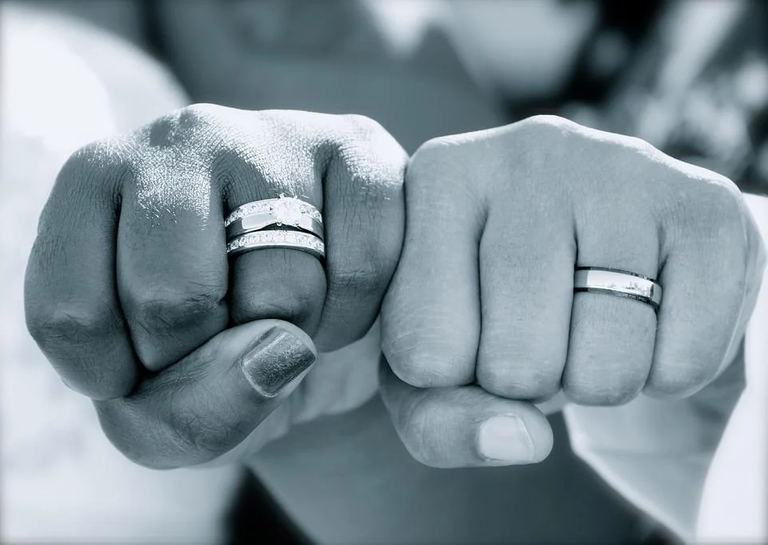
Regarding the will. Even with him, part of the inheritance goes to the heirs of the first line. That is, for example, homophobic parents who did not love their queer child very much during their lifetime can easily take a share. Moreover, they have the right to challenge the will and win the court and take absolutely everything for themselves, leaving their child's loved one without everything.
Щодо заповіту. Навіть із ним частина спадку відходить до спадкоємців першої черги. Тобто, наприклад, гомофобні батьки, які за життя не дуже любили свої квір-дитину, можуть спокійно забрати частку. Ба більше, вони мають право оскаржити заповіт та виграти суд і забрати абсолютно все собі залишивши кохану людину своєї дитини без усього.
As for resuscitation, a few years ago it was allowed to visit the patient not only for relatives. But other aspects still require marital status or a will/power of attorney. For example, cohabitants cannot dispose of the deceased partner's body after his death. My girlfriend does not want to be buried in a wedding dress (one of the customs for unmarried children), I can hardly guarantee one hundred per cent that her relatives will listen and accept this wish and not do everything of their own free will.
Щодо реанімації, то кілька років назад дозволили відвідування хворого не тільки для родичів. Але інші аспекти все ще вимагають статусу подружжя чи заповіту/довіреності. Наприклад, співмешканці не можуть розпоряджатись тілом померлого партнера після його смерті. От моя дівчина не хоче щоб її ховали у весільному платті (один із звичаїв для незаміжніх дітей), навряд я зможу на всі сто відсотків гарантувати те, що це бажання вислухають та приймуть її родичі і не зроблять за власним бажанням все.
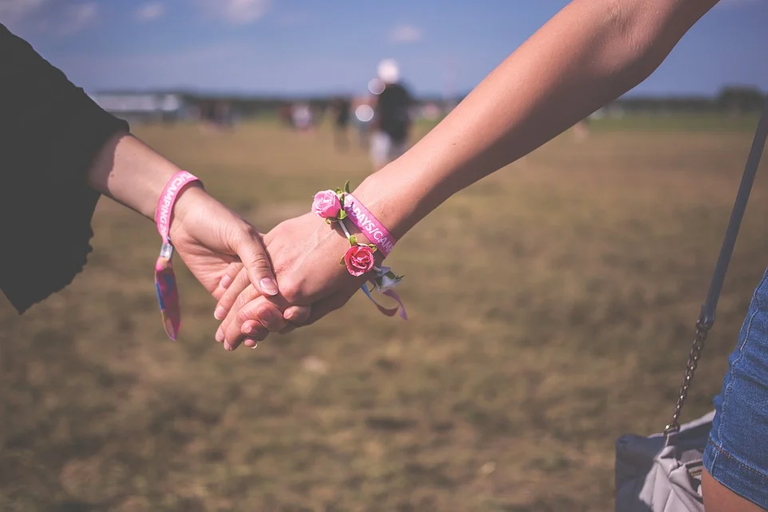
Social state support. For example, with the death of one of the spouses, the other can claim his pension. This is especially important if the deceased was a carer for a partner with a disability.
Соціальна державна підтримка. Наприклад, зі смертю одного з подружжя інший може претендувати на його пенсію. Особливо важливо, якщо померлий був доглядальником партнера з інвалідністю.
Children and guardianship. Yes, gays and lesbians can and do have children. And yes, hundreds of children grow up in same-sex families here in Ukraine. And I don't mean these standard "mother and grandmother". Children from a previous partner, adoption or surrogate motherhood in which the child is raised by two mothers or two fathers. I will say more, in the world, and here too, there is a practice of creating a format where a gay acquaintance acts as a sperm donor and can also take part in raising a child.
Діти і опікунство. Так, геї і лесбійки можуть і мають дітей. І так, сотні дітей ростуть у одностатевих сім’ях тут, в Україні. І я маю на увазі не оці стандартні «мама з бабусею». Діти від попереднього партнера, всиновлення чи сурогатне материнство при якому дитину виховують дві мами чи два тата. Скажу більше, в світі, і у нас також, є практика створення формату де, знайомий гей виступає донором сперми і може також приймати участь у вихованні дитини.
What is the problem - the partner of the child's guardian in such families does not have any rights and responsibilities toward the child. If the world forbids, something happens to the guardian, the child ends up in an orphanage, even if he has a roof over his head and a person who has cared for him for years. Another option is that the child falls into the guardian's family, and if they are homophobic and did not accept their child, then the child does not want to continue communicating with the person whom he considers a second mother or father and loves.
У чому проблема – партнер опікуна дитини у таких сім’ях не має жодних прав і обов’язків щодо дитини. Якщо, упаси всесвіт, із опікуном щось стається, дитина опиняється у дитбудинку, навіть якщо у неї є дах над головою і людина, яка опікувалась нею роками. Інший варіант дитина потрапляє в сім'ю опікуна і якщо вони гомофоби та не сприймали свою дитину, то малечі не світить продовження спілкування з людиною котру вона вважає другою мамою чи татом та любить.
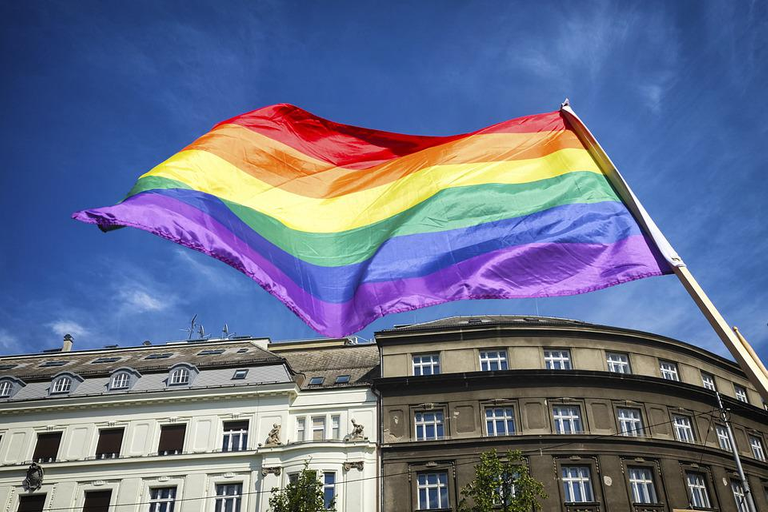
With the current legislation, there is a theoretical possibility of registering guardianship, which will be valid until the child comes of age. After that, the guardian and the child are considered strangers. Adoption, which provides more rights and obligations for a same-sex couple, is prohibited.
З поточним законодавством є теоретична можливість оформлення опікунства, яке діятиме до повноліття дитини. Після цього опікун і дитина вважаються чужими людьми. Всиновлення ж, яке надає більше прав і обов’язків, для пари одної статі є забороненим.
As you can see, marriage provides a huge list of rights. Other legal procedures, such as a will, power of attorney, or guardianship, can only partially replace them, and in addition, they require significantly more money and time for their conclusion. At the same time, all these things can be easily destroyed in court.
Як бачите, шлюб надає величезний список прав. Інші юридичні процедури, як заповіт, довіреність чи опікунство, лише частково може їх замінити, а крім того вимагають відчутно більше витрат грошей і часу на їх укладання. При цьому всі ці речі можна легко знищити в суді.
The institution of partnership, seen as an alternative or compromise to same-sex marriage, only partially redresses such inequality. As the experience of other countries shows, children's issues are left behind.
Інститут партнерства, який розглядають як альтернативу або компроміс щодо одностатевих шлюбів, лише частково виправляє подібну нерівність. Як показує досвід інших країн, за бортом залишаються питання дітей.